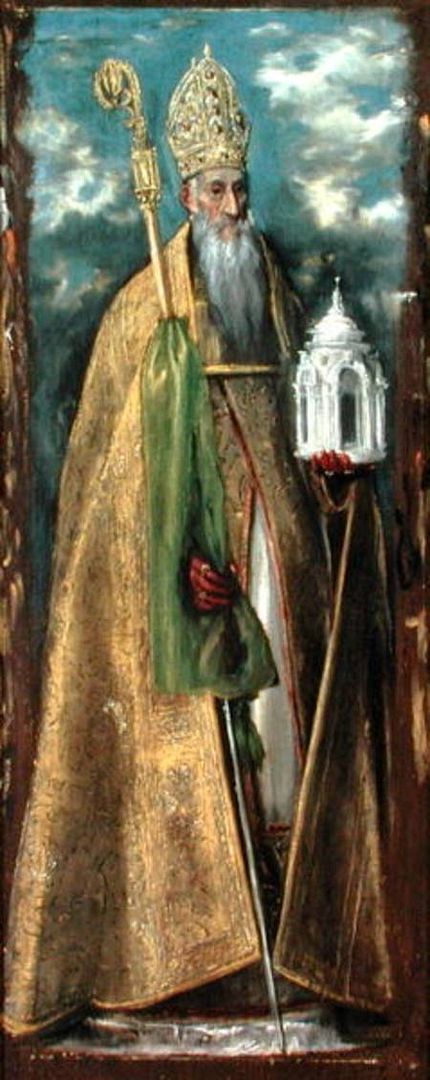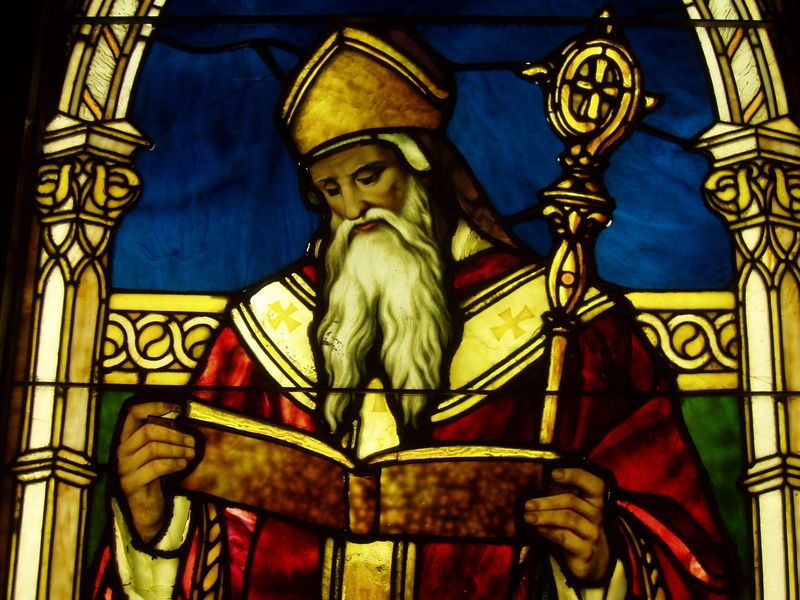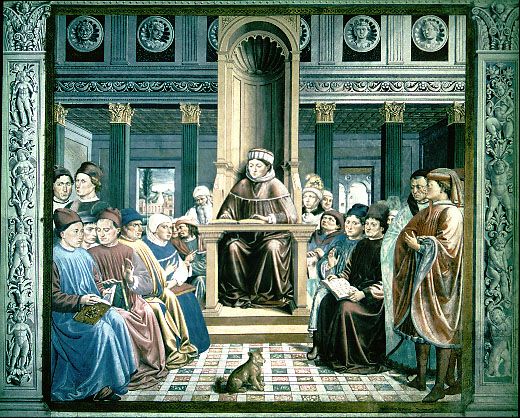We continue our reflections on the writings of Saint Augustine of Hippo (354-430), whose feast day we celebrated yesterday. Bishop, confessor, Doctor of the Church, and one of the Four Great Fathers of the Latin Church, Augustine is one of the most influential thinkers and writers of Catholicism. His legacy in written works numbers at over 100 books, and 5,000,000 words! Within those words, the philosophy and virtues of our faith are revealed, inspiring us to a closer relationship with the Lord.
Today, we read an excerpt from the Confessions, in which Augustine touches on themes of suffering, adversity, trial, and sorrow—those emotions present in times of trouble, when we feel separated from Our Lord.
Where did I find you in order to make your acquaintance in the first place? You could not have been in my memory before I learned to know you. Where then could I have found you in order to learn of you, if not in yourself, far above me? “Place” has here no meaning: further away from you or toward you we may travel, but place there is none. O Truth, you hold sovereign sway over all who turn to you for counsel, and to all of them you respond at the same time, however diverse their pleas.
Clear is your response, but not all hear it clearly. They all appeal to you about what they want, but do not always hear what they want to hear. Your best servant is the one who is less intent on hearing from you what accords with his own will, and more on embracing with his will what he has heard from you.
Late have I loved you, Beauty so ancient and so new, late have I loved you!
Lo, you were within,
but I outside, seeking there for you,
and upon the shapely things you have made
I rushed headlong – I, misshapen.
You were with me, but I was not with you.
They held me back far from you,
those things which would have no being,
were they not in you.
You called, shouted, broke through my deafness;
you flared, blazed, banished my blindness;
you lavished your fragrance, I gasped; and now I pant for you;
I tasted you, and now I hunger and thirst;
you touched me, and I burned for your peace.
When at last I cling to you with my whole being there will be no more anguish or labor for me, and my life will be alive indeed, alive because filled with you. But now it is very different. Anyone whom you fill you also uplift; but I am not full of you, and so I am a burden to myself. Joys over which I ought to weep do battle with sorrows that should be matter for joy, and I do not know which will be victorious. But I also see griefs that are evil at war in me with joys that are good, and I do not know which will win the day. This is agony, Lord, have pity on me! It is agony! See, I do not hide my wounds; you are the physician and I am sick; you are merciful, I in need of mercy.
Is not human life on earth a time of testing? Who would choose troubles and hardships? You command us to endure them, but not to love them. No-one loves what he has to endure, even if he loves the endurance, for although he may rejoice in his power to endure, he would prefer to have nothing that demands endurance. In adverse circumstances I long for prosperity, and in times of prosperity I dread adversity. What middle ground is there, between these two, where human life might be free from trial? Woe betide worldly prosperity, and woe again, from fear of disaster and evanescent joy! But woe, woe, and woe again upon worldly adversity, from envy of better fortune, the hardship of adversity itself, and the fear that endurance may falter. Is not human life on earth a time of testing without respite?
On your exceedingly great mercy, and on that alone, rests all my hope.
Why pray the Rosary every day for a year?
Each time the Blessed Virgin has appeared-- whether it be to Saint Bernadette Soubirous at Lourdes; to Lucia, Jacinta, and Francisco at Fatima; or to Mariette Beco at Banneux-- she has asserted the importance, saving grace, and power of praying the Holy Rosary on a daily basis. Based upon her words, the Rosary is penance and conversion for sinners, a pathway to peace, an end to war, and a powerful act of faith in Jesus Christ. Pope Paul VI presented the Rosary as a powerful means to reach Christ "not merely with Mary but indeed, insofar as this is possible to us, in the same way as Mary, who is certainly the one who thought about Him more than anyone else has ever done."
To show us how this is done, perhaps no one has been more eloquent than the great Cardinal Newman, who wrote: "The great power of the Rosary consists in the fact that it translates the Creed into Prayer. Of course, the Creed is already in a certain sense a prayer and a great act of homage towards God, but the Rosary brings us to meditate again on the great truth of His life and death, and brings this truth close to our hearts. Even Christians, although they know God, usually fear rather than love Him. The strength of the Rosary lies in the particular manner in which it considers these mysteries, since all our thinking about Christ is intertwined with the thought of His Mother, in the relations between Mother and Son; the Holy Family is presented to us, the home in which God lived His infinite love."
As Mary said at Fatima, "Jesus wants to use you to make Me known and loved. He wishes to establish the devotion to My Immaculate Heart throughout the world. I promise salvation to whoever embraces it; these souls will be dear to God, like flowers put by Me to adorn his throne."

Subscribe to:
Post Comments (Atom)











0 comments:
Post a Comment
Thanks for leaving a comment. If you wish to submit a prayer request, however, please do so above, using the "Contact" tab.